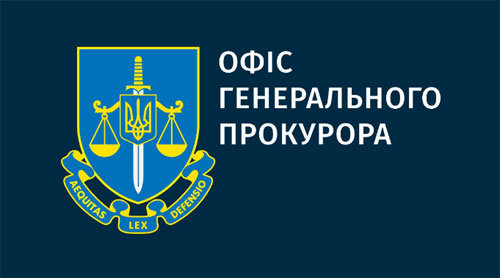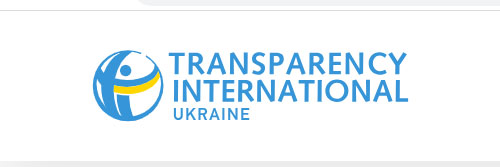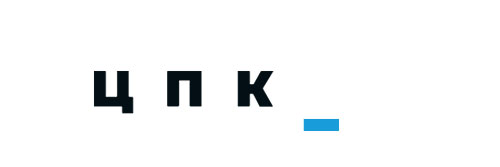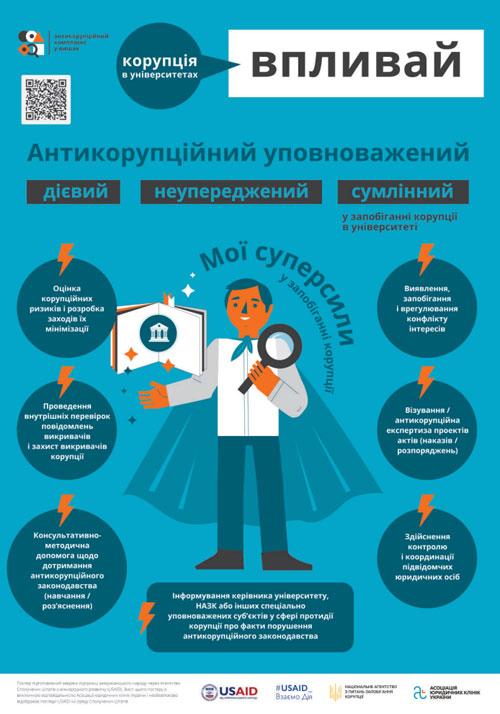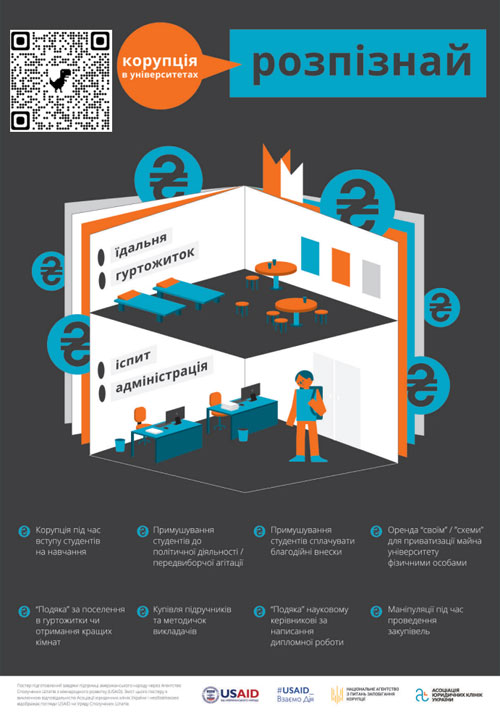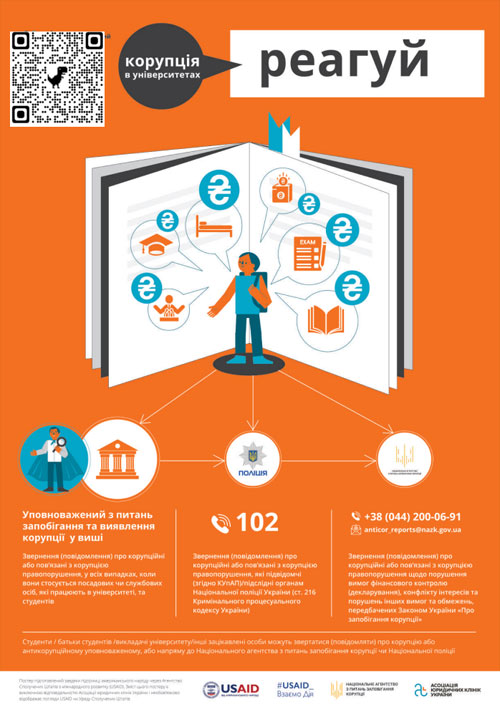Building integrity in the higher education system is one of the priorities of Ukraine's current education policy. The Ministry of Education and Science of Ukraine has taken another important step in this direction by developing methodological recommendations for implementing the principles of integrity in the activities of higher education institutions. The document, approved by Order No. 576 of April 17, 2025, is a systematic guide for everyone working in higher education, from administrators and staff to anti-corruption officers and students.
First and foremost, it is about building a comprehensive system that combines integrity policies, transparent management procedures, and educational activities. The authors of the document emphasize that integrity is not just a set of formal anti-corruption measures. It is a value that should form the basis of the educational environment, teamwork, communication with students, and cooperation with external partners.
One of the key sections of the guide is devoted to the organization of anti-corruption work in higher education institutions. The effectiveness of these activities depends on how well they are integrated into the internal processes of higher education institutions. This means not only creating responsible structures or approving relevant policies, but also systematic work to raise awareness, develop codes of ethics, carry out internal monitoring, and form requests for openness and accountability.
The document also examines in detail the practical mechanisms for implementing the principles of integrity in the educational process. This includes the correct formatting of references in students' work, ethical behavior of teachers, transparency in assessment, and the avoidance of negative phenomena such as plagiarism, falsification of results, or abuse of official position in the educational process. The authors provide advice on how to make ethical standards part of everyday educational practice, rather than just a declarative norm.
The guide pays particular attention to transparent interaction between higher education institutions and external stakeholders: businesses, public or charitable organizations. Clear principles are defined to prevent potential conflicts of interest, ensure the independence of academic decisions, and promote the transparent use of donor resources. This is particularly relevant given the growing role of partnerships in funding research, implementing educational programs, and supporting infrastructure.
The guide was created as a practical tool. It not only outlines general principles but also offers examples of solutions that can be adapted to the specific context of an educational institution. The recommendations draw on both Ukrainian and international experience, making them a modern, flexible, and accessible tool for every higher education institution.
Building a culture of integrity is a long but extremely important process that requires the participation of the entire academic community. Every teacher, student, employee, and manager is a bearer of this culture. It is their involvement and responsibility that determine trust in education, the reputation of the university, and the quality of training of specialists.
For more details, visit the NACP website: https://nazk.gov.ua/uk/83924/



